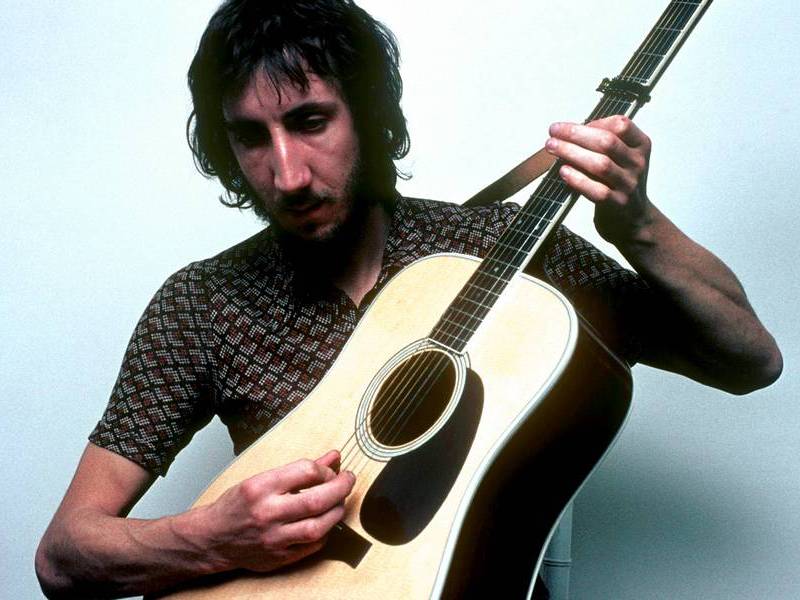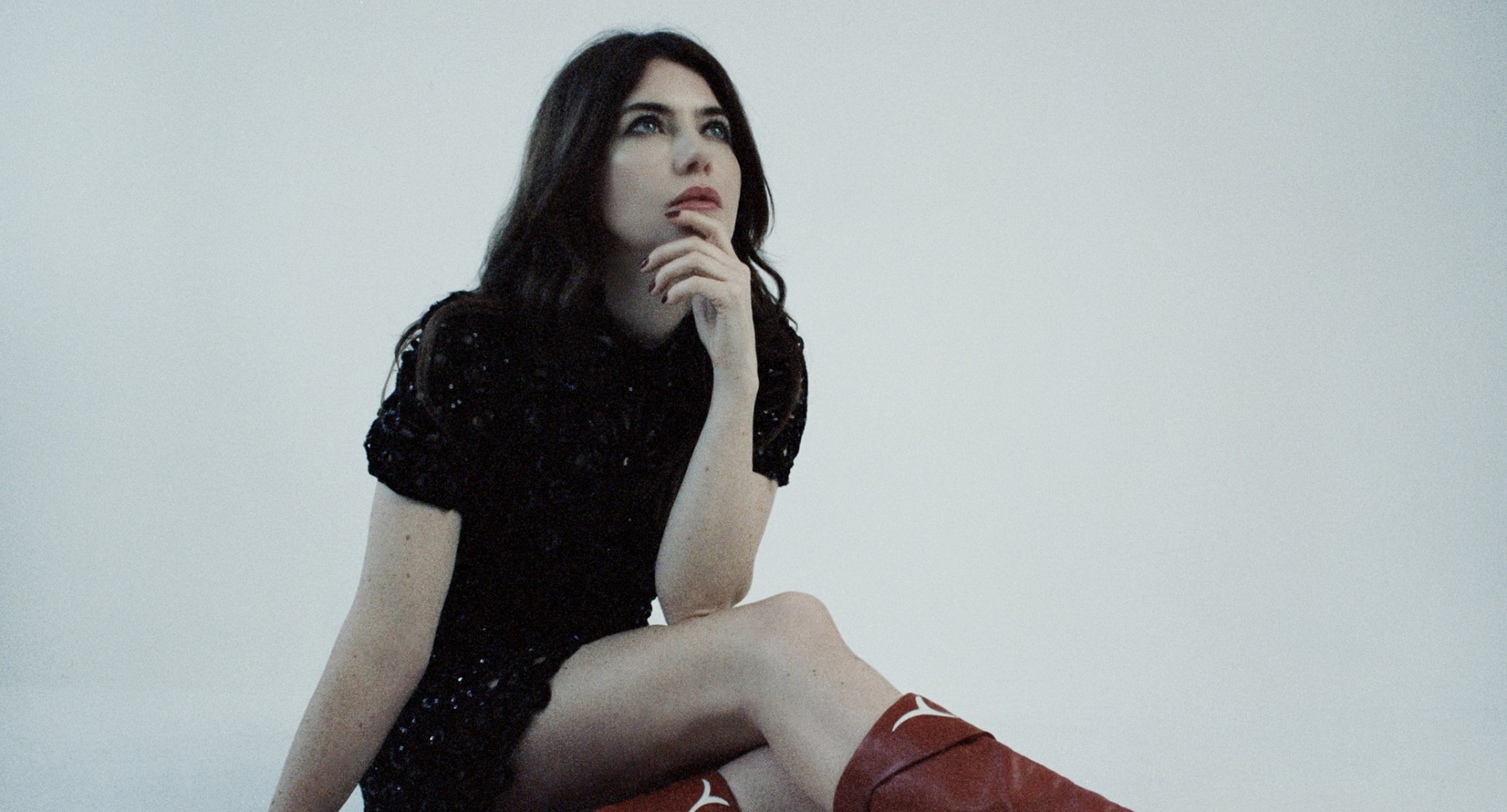
Joyeux anniversaire, Pete Townshend !!!
Joyeux anniversaire à Pete Townshend, qui fête ses 78 ans aujourd’hui (19 mai) !!! Townshend, qui est la principale force créatrice des Who, a écrit la quasi-totalité de la musique du groupe et a été responsable de l’élaboration des histoires et des thèmes de classiques du rock tels que Tommy, Who’s Next et Quadrophenia.
En mars dernier, Townshend a sorti son premier single solo depuis 29 ans. Ce titre acoustique, intitulé « Can’t Outrun The Truth », a été écrit par Rachel Fuller, épouse et collaboratrice fréquente de Townshend, produit par Charlie Pepper et réalisé par Jon Astley, beau-frère de Townshend. Le titre est apparu à l’origine dans le film de Jude Law, The Hat, sorti en 2020. Tous les bénéfices seront reversés à l’association Teenage Cancer Trust.
En avril, Pete Townshend et Ann-Margret ont sorti une nouvelle version de « Bye Bye Love », le classique rock de 1957 des Everly Brothers, qui s’est hissé à la deuxième place du palmarès. Ce titre, qui met également en scène la légende de la country T.G. Sheppard, n’est qu’une des nombreuses collaborations de la chanteuse sur son nouvel album, Born To Be Wild.
Il y a quelque temps, nous avons demandé à Pete Townshend pourquoi il avait besoin de grands concepts tels que Tommy, Quadrophenia et le récent mini-opéra Wire And Glass pour la plupart de ses œuvres : [“I just write. I’m just a songwriter, y’know, that’s what I do. Which is why it’s very important for me to have some kind of concept to hold me down, some kind of concept to give my work shape, focus, and direction. Because I don’t feel that the Who ever had a clear brief (on what to write for them), ever, ever, ever, ever.”] (:21 OC : . . . jamais jamais jamais)
Alors que Tommy est devenu un pilier de la carrière des Who, mais aussi de la radio rock classique, Townshend a été interrogé sur la raison pour laquelle l’album reste d’actualité : [“I think it’s only really relevant today, in as much as it was relevant to start with. It’s a fairly simple childlike fairytale. And what makes it work today, I think is its naivety. It’s not all naive, it’s not innocent. It has fantastic simplicity.”] (:19 OC : . . . a une simplicité fantastique)
Étonnamment, l’année 2020 a marqué le 40e anniversaire du premier album solo entièrement réalisé par Pete Townshend, Empty Glass (1980). Son travail en solo du début des années 80, créé alors qu’il écrivait, enregistrait et parcourait le monde avec les Who, l’a, il est vrai, laissé physiquement et émotionnellement épuisé. Il nous a dit qu’il était indigné par tous les fans des Who qui avaient l’impression qu’il gardait ses meilleurs morceaux pour lui, au lieu de les donner aux Who : [“This was a mistake that I ever embarked on a solo career. I understand that now. I shouldn’t have done it. But, y’know, to be honest, that type of Who fan-ism, it irritates me. Because what it’s actually doing is, it’s so easy to make these comments after the fact. Everything is easy in hindsight. Y’know, what was actually going on at the time was that I was trying to satisfy my own peculiar creative urge. My unique creative urge, which wasn’t classic ‘Rough Boy’ Who stuff.”] (:30 OC : …. boy who stuff)
Townshend a expliqué qu’en plus de faire de son autobiographie, Who I Am, une bonne lecture, la vérité devait correspondre à sa vie : [“I had to write the truth as I saw it and I remembered it. Now that’s a very strange truth, because everybody’s memory is different and then I knew that there would be arguments with my friend Barney (Richard Barnes) later on, when he said, ‘That didn’t happen this way’ or ‘That didn’t happen that way.’ I’m getting a bit of that now with old friends who say, ‘No, that’s not what happened.’ And I said, ‘Listen, I have to tell my story my way.’ But this was an honest. . . for me, it had to be what I believed to be the truth.”] (:31 OC : . . . être la vérité)
Il dit qu’il ne s’excuse pas de s’être éloigné de la musique rock pour se lancer dans le théâtre, les films et les romans : [“Y’know, some of those people that still to this day regard me as being pretentious because I aspire to live my life as an artist rather than a ‘cash is king’ rock n’ roll performer. If that’s pretentious, so be it.”] (:13 OC : . . . ainsi soit-il)
Lors de sa récente apparition sur NPR, Pete Townshend a expliqué la signification de « All This Music Will Fade », le titre phare du dernier album des Who : [“Since the ’60s it’s become more and more basic, more and more simple. Music is often what’s borrowed, what is often stolen, what is often echoed, what is often repeated — particularly in our business. So, it’s kind of absurd for somebody to pop out of the woodwork and accuse, let’s say, somebody like Ed Sheeran — whose music is not exactly (Arnold) Schoenberg — of ripping off some earlier song. It just happens. We only have this limited language to deal with.”] (:29 OC : . . . à gérer)
Bien qu’il ait toujours fait la distinction entre artiste créatif et interprète, Pete Townshend a admis à l’émission PBS News Hour que même s’il fait incroyablement bien son travail, cela ne veut pas dire qu’il l’apprécie vraiment : [“I don’t feel excited. I feel I’m there to do a job. There’s no thrill. Indeed, I would say I don’t like it much. I do it as a job, and I find it in credibly easy. So easy — I don’t even have to think about it.”] (:13 OC : . . . réfléchissez-y)
Roger Daltrey a récemment expliqué que, sur scène comme en dehors, Pete Townshend et lui sont restés frères d’armes jusqu’à la fin : [“It’s never been low, it’s always been very close, but like every good, close relationship, you’re gonna have your little spats. And that’s what builds your character and your strength. And we’re probably closer today and having more fun. . . What’s so wonderful about — we’ve been together nearly 60 years now — Pete and I — in a professional relationship.”] (:19 OC : . . . une relation professionnelle)



